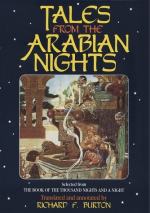Schiller (in “Die Sendung Moses”) argues that the mission of the Jewish lawgiver, as adopted son (the real son?) of Pharoah’s daughter, became “learned in all the wisdom of the Egyptians,” by receiving the priestly education of the royal princes, and that he had advanced from grade to grade in the religious mysteries, even to the highest, in which the great truth of the One Supreme, the omniscient, omnipotent God was imparted, as the sublime acme of all human knowledge, thus attributing to Moses before his flight into Midian, an almost modern conception of an essentially anthropomorphous Deity.
Further, that his conscious mission when he returned to Egypt was not merely the deliverance of his people from the Egyptian yoke, but the revelation to them of this great conception, and so the elevation of that host of slaves to the position of a nation, to whose every member the highest mystery of religion should be known and whose institutions should be based upon it. It is remarkable that Schiller should have accepted the fables of Manetho as history, that he should not have suspected the fact that the Egyptian priest wrote from motives of personal spite and jealousy, and with the object of poisoning the mind of Ptolemy against the learned Jews with whom he stood on terms of personal friendship. Thus he not only accepts the story that the Hebrews were expelled from Egypt because of the almost universal spread of leprosy among them, but explains at length why that loathsome and horrible disease should have so prevailed. Still Schiller’s essay, written with his own charming eloquence, is a magnificent eulogy of the founder of the Hebrew nation.




